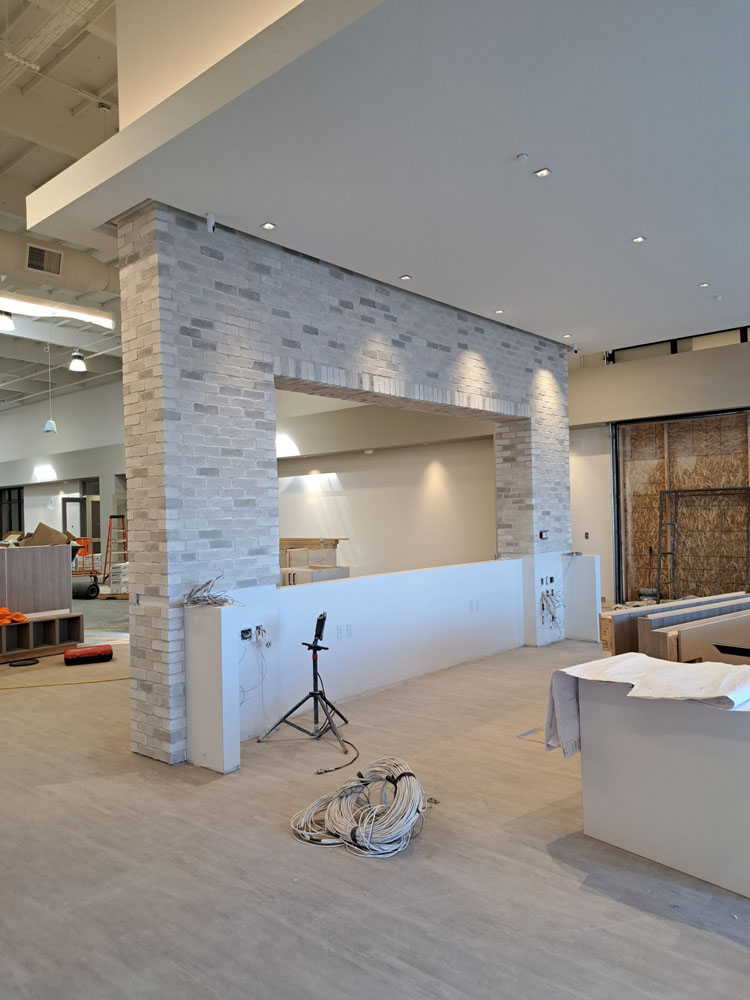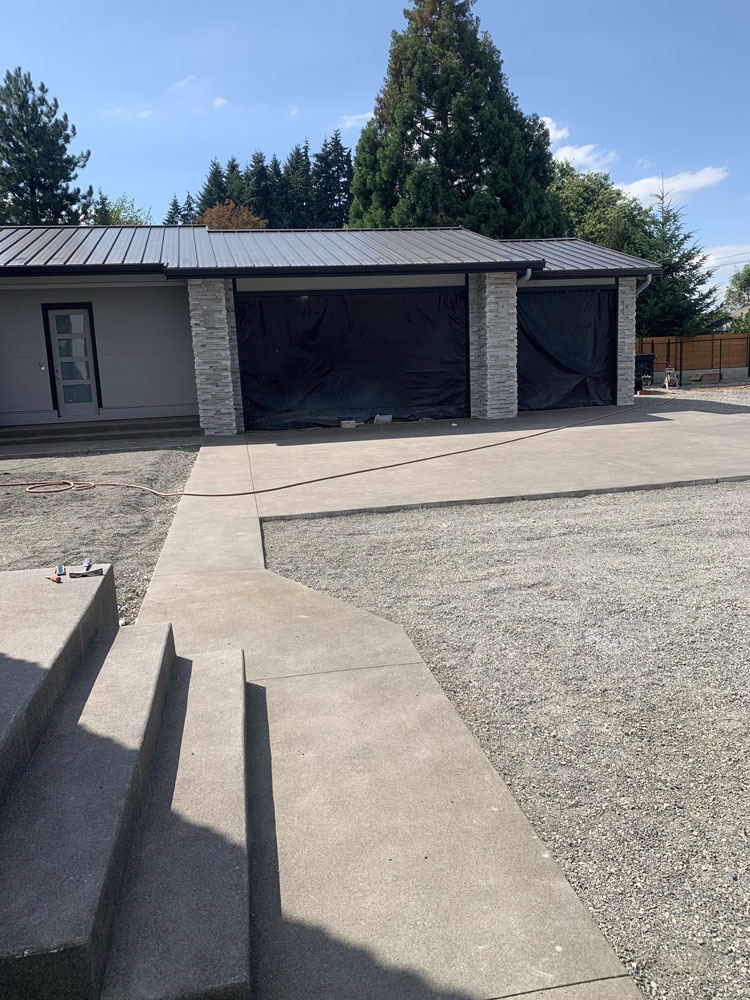Introduction: The Foundation of Quality Construction
Building a solid structure isn't just about bricks and mortar; it’s about understanding the intricate web of regulations, standards, and best practices that govern the masonry industry. When you think of masonry, your mind might drift to bricklaying or stonework, but there’s an entire universe behind it that only seasoned professionals—namely licensed masons—truly grasp. In this article, we’ll dive deep into the role of licensed masons in navigating regulations and standards, highlighting their importance as masonry contractors who ensure that quality meets compliance.

Understanding the Role of Licensed Masons
What is a Licensed Mason?
A licensed mason is not just any contractor; they are trained professionals who have earned credentials through rigorous education and testing. These experts understand the complexities of construction codes, safety protocols, and building standards. They are responsible for ensuring that every project adheres to local laws while also meeting aesthetic and structural requirements.
Why Choose a Licensed Masonry Contractor?
Selecting a licensed masonry contractor guarantees you’re working with someone who knows what they're doing. But why does it matter? Here are some compelling reasons:
- Expertise: Licensed masons have completed extensive training programs. Compliance: They stay updated on all local regulations. Quality Assurance: They adhere to industry standards for materials and workmanship. Insurance Protection: Hiring a licensed contractor minimizes liability risks.
Navigating Regulations and Standards—The Role of Licenced Masons
Licensed masons serve as guides through the labyrinthine world of regulations and standards in construction. Their expertise allows them to navigate these complexities seamlessly, ensuring projects are compliant from start to finish.
Building Codes: The Backbone of Safe Construction
What Are Building Codes?
Building codes are sets of regulations that dictate how buildings must be constructed. These codes cover everything from fire safety to structural integrity. Licensed masons interpret these codes to ensure compliance.

Why Are Building Codes Important?
Safety: They protect public safety by preventing hazardous construction practices. Quality: They maintain high-quality standards in construction. Legal Compliance: Non-compliance can lead to fines or even legal action.Understanding Zoning Laws for Masonry Work
Zoning Laws Explained
Zoning laws regulate land use within specific areas. For instance, some zones may restrict types of materials used or dictate building heights.
How Do Licenced Masons Help Navigate Zoning Laws?
Licensed masons can advise clients on zoning restrictions before starting a project, ensuring that plans align with local ordinances.
The Importance of Permits in Masonry Projects
What Are Construction Permits?
Construction permits are legal approvals required before commencing any significant building work. They verify that proposed projects comply with local codes.
How Do Licensed Masons Handle Permits?
Application Process: Licensed masons help clients fill out necessary paperwork. Inspection Preparation: They prepare sites for inspections once permits are granted. Post-Permit Adjustments: If changes need to be made post-inspection, licensed masons manage these updates efficiently.Quality Control Measures in Masonry Work
What Is Quality Control in Construction?
Quality control involves systematic processes aimed at maintaining high standards throughout construction phases—from material selection to finished product inspection.
How Do Licenced Masons Ensure Quality Control?
Material Sourcing: They source high-grade materials compliant with industry standards. Regular Inspections: Continuous checks during construction ensure adherence to design specifications. Training Teams: Ongoing training keeps crews up-to-date with best practices.Environmental Regulations Affecting Masonry Work
Understanding Environmental Compliance in Construction
Environmental regulations aim to safeguard ecosystems while promoting sustainable practices in construction projects.
How do Licensed Masons Address Environmental Concerns?
Licensed masons often:
- Use eco-friendly materials Implement recycling practices on-site Ensure waste is disposed of according to environmental laws
Navigating Safety Standards in Masonry Projects
Safety Protocols Every Mason Should Know
Construction sites pose various hazards; thus, adhering to safety protocols is non-negotiable for licensed masons.
Common Safety Practices Include:
Wearing personal protective equipment (PPE). Conducting site assessments regularly. Keeping clear communication among team members during operations.The Significance of Insurance for Licensed Masons
Why Is Insurance Important in Masonry?
Insurance protects both contractors and clients against unforeseen circumstances like accidents or property damage during construction projects.
Types of Insurance Relevant to Masonry Contractors Include:
General Liability Insurance Workers' Compensation Insurance Professional Liability InsuranceCollaboration with Architects and Engineers
The Team Approach in Successful Projects
Licensed masons frequently collaborate with architects and engineers to create cohesive plans that meet regulatory requirements while achieving aesthetic goals.
Benefits of Collaboration Include:
Masonry Contractor In Stafford Streamlined Communication Faster Problem-Solving Enhanced Project OutcomeFAQs About Licensed Masons and Regulations
1. What qualifications should I look for in a masonry contractor?
Look for licenses, certifications, insurance coverage, and experience – all indicators that they understand relevant regulations!
2. How important is it to hire a licensed mason?
It’s crucial! A licensed mason not only understands local laws but ensures your project is safe and compliant from day one!
3. What can happen if I skip permits?
Skipping permits could result in fines or having your work redone – it’s simply not worth the risk!
4. Can unlicensed contractors perform masonry work?
Technically yes, but you’re putting yourself at risk! Unlicensed workers may not adhere to safety or quality standards.
5. How often are building codes updated?
Building codes can be updated annually or biannually depending on local legislation – staying current is essential!
6. What should I do if my mason isn’t following regulations?
Document your concerns immediately! You may need legal guidance if your contractor fails to meet compliance requirements!
Conclusion
In conclusion, navigating regulations and standards is no small feat—but it’s where licensed masons shine! As skilled professionals trained specifically for this purpose, they ensure not just compliance but also pave the way for successful projects built on solid foundations—both literally and figuratively! Whether you’re looking into new constructions or renovations, choosing a reputable masonry contractor can make all the difference between chaos and seamless execution!

So next time you think about starting a construction project involving masonry work—remember how critical navigating those regulations truly is—and trust those who’ve dedicated themselves to mastering this complex art!
By engaging experienced licensed masons as your go-to contractors, you're investing not just in bricks but also laying down the groundwork for quality assurance throughout your entire building journey!